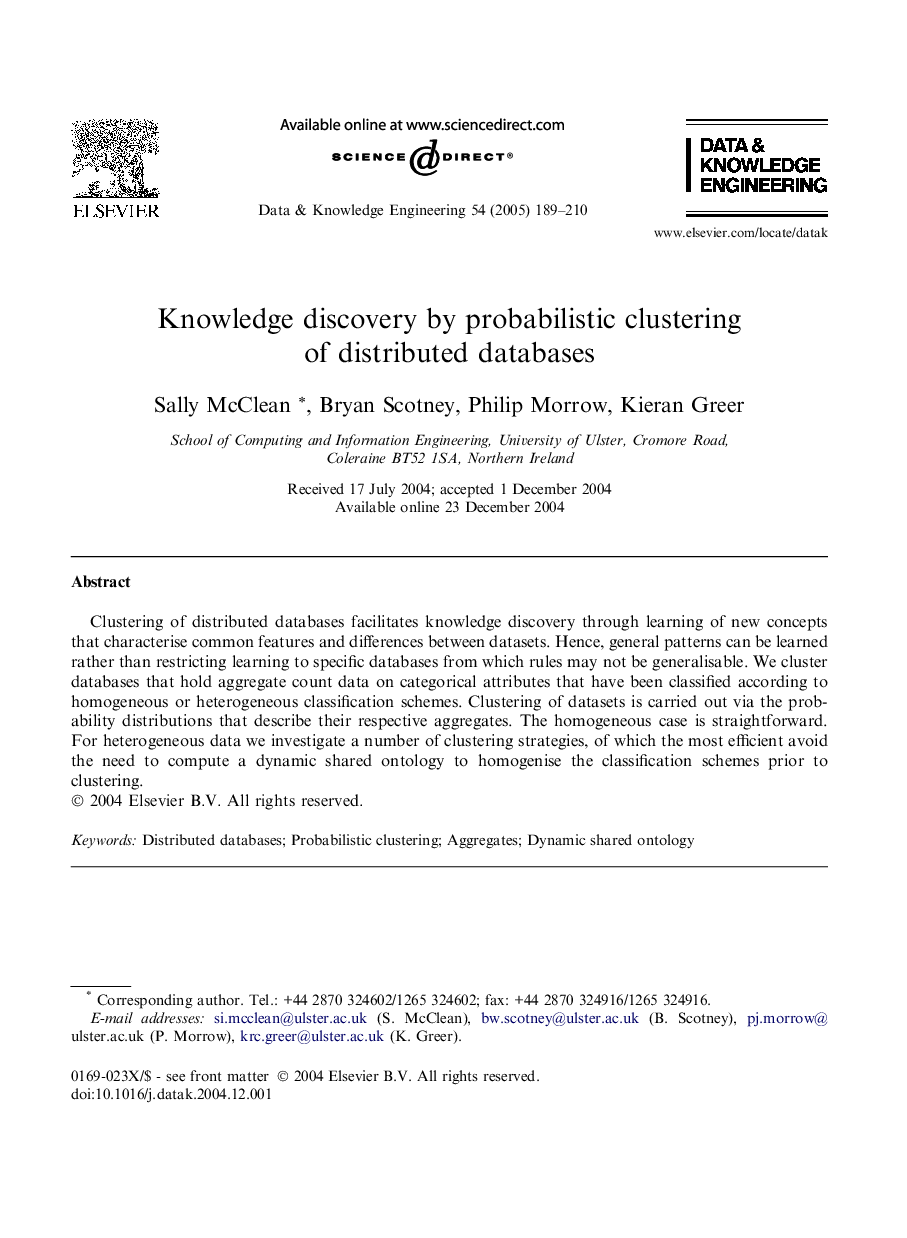| Article ID | Journal | Published Year | Pages | File Type |
|---|---|---|---|---|
| 10321295 | Data & Knowledge Engineering | 2005 | 22 Pages |
Abstract
Clustering of distributed databases facilitates knowledge discovery through learning of new concepts that characterise common features and differences between datasets. Hence, general patterns can be learned rather than restricting learning to specific databases from which rules may not be generalisable. We cluster databases that hold aggregate count data on categorical attributes that have been classified according to homogeneous or heterogeneous classification schemes. Clustering of datasets is carried out via the probability distributions that describe their respective aggregates. The homogeneous case is straightforward. For heterogeneous data we investigate a number of clustering strategies, of which the most efficient avoid the need to compute a dynamic shared ontology to homogenise the classification schemes prior to clustering.
Related Topics
Physical Sciences and Engineering
Computer Science
Artificial Intelligence
Authors
Sally McClean, Bryan Scotney, Philip Morrow, Kieran Greer,
